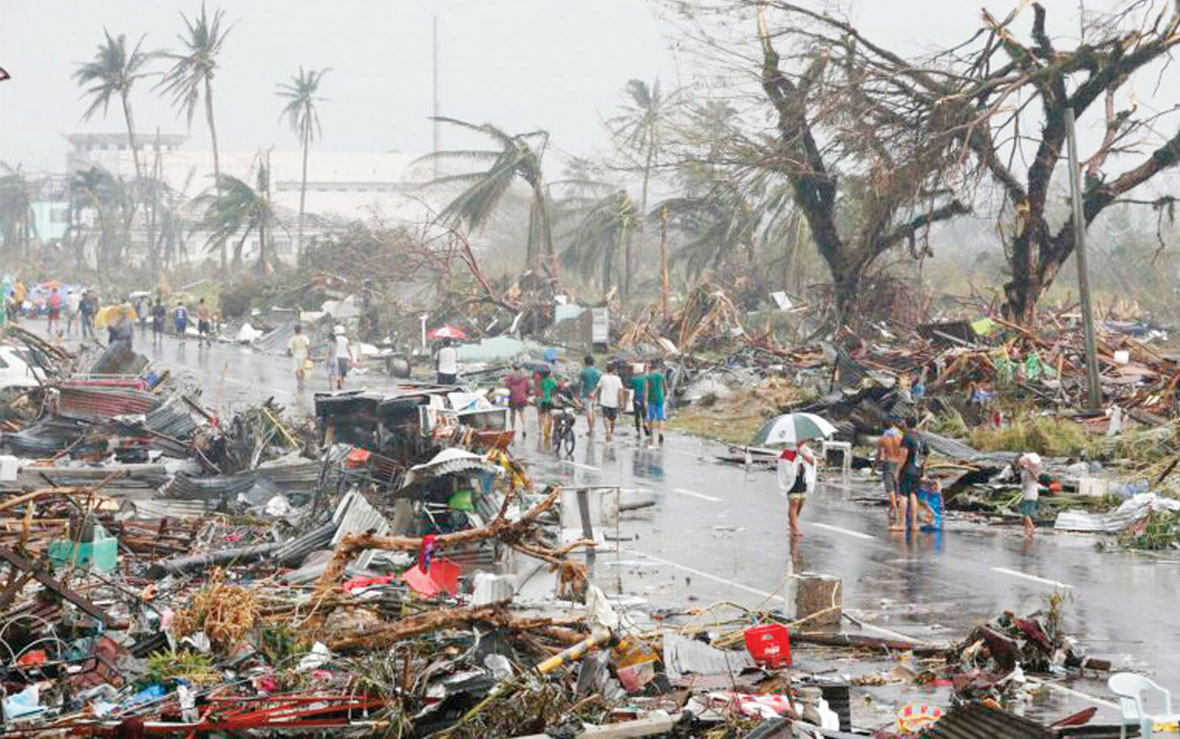Advocates today called on the Philippine government to champion the Climate Damages Tax, a mechanism imposing levies on the continued operations of fossil fuel companies to fund loss and damage financing. The call was made in a press conference organized by Greenpeace Philippines in Quezon City, following the recent release of a report on taxing fossil fuel extraction. This comes at a time when the country grapples with record-breaking heat due to a strong El Niño, and is currently preparing for a highly probable La Niña event which could result in more damaging tropical cyclones in the latter half of the year.
The Climate Damages Tax (CDT) report is backed by over 100 climate organizations worldwide including Greenpeace, Stamp Out Poverty, Power Shift Africa and Christian Aid. It proposes that the Organisation for Economic Co-operation and Development (OECD) countries, in particular members of the G7, lead in introducing a fee per tonne of CO2 embedded (CO2e) within the domestic extraction of coal, oil and fossil gas. This fee, pegged at USD 5 per tonne of carbon dioxide equivalent, will be ratcheted up annually, which also serves as a disincentive to continue fossil fuel extraction. In total, the tax could raise USD 720B by the end of the decade to support the world’s most vulnerable facing climate damages.[1]
The Philippines has for decades been battered by severe climate impacts such as extreme weather in the form of super typhoons and drought, and faces slow onset impacts such as sea level rise. The Department of Finance estimated that the country suffered around USD 10B in damages from climate hazards from 2010 to 2020[2]. This year, the country has already incurred at least PHP 5.9B in damages due to an ongoing El Niño[3] even as it prepares for the onslaught of a probable La Niña during the second half of the year.
Greenpeace says that the country will continue to lose more if climate accountability mechanisms are not put in place while oil and fossil gas companies continue to do business as usual and even expand their operations. The group says that the country stands to gain from CDT because it hastens the collection of much-needed loss and damage financing, and makes carbon majors pay for their continued operations. CDT should work in conjunction with other climate accountability systems, like the Climate Accountability Bill (CLIMA Bill) which was filed in the Philippine Congress last year[4].
Groups behind the report say that the CDT should be operationalized as part of a comprehensive framework to not only disincentivize fossil fuel dependence but also to close the gap between escalating community adaptation needs and the actual money on the pot.
The CDT report comes just in time for the annual general meetings of the biggest fossil fuel companies this month. As it is expected that they will report billions in profit, Greenpeace says it is imperative to highlight that these profits come from the suffering of frontline and vulnerable communities heavily impacted by the climate crisis. The group is calling on the Philippine government to heed the call for urgent climate action and support local and international efforts that will make climate polluters pay and justly transition away from fossil fuels.









